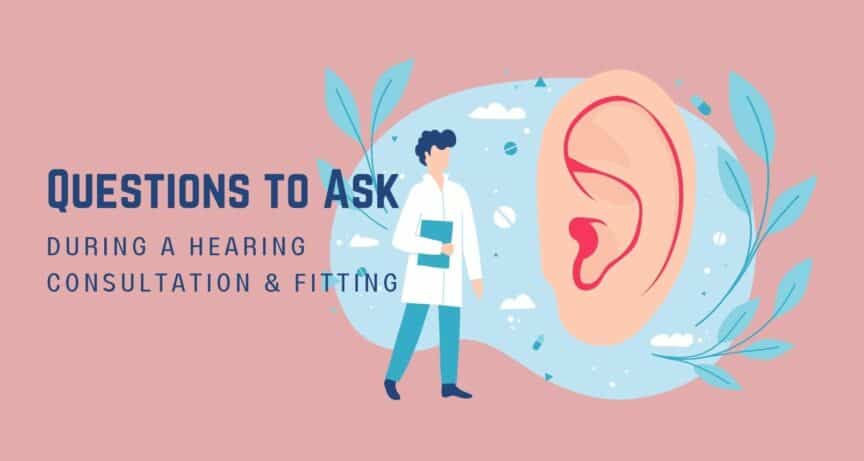
Questions to Ask During a Hearing Consultation & Fitting
When you have taken the step toward hearing assistance, you are investing in your health and wellbeing. Congratulations on beginning your journey! Deciding to get a hearing test is the crucial step you need to take, and your hearing health professional will take the lead going forward. Although you don’t need to keep tabs on all the details of the process, it is important to share useful information with your provider. When you have your hearing test, you will also have an opportunity to consult about your individual needs. Once your hearing aids have arrived, you will also have a fitting appointment to make sure they are a snug and comfortable fit for the shape of your ears.
At each of these opportunities, you will be able to raise questions and share important details from your own experience. It can be helpful to bring along a trusted friend or family member for these meetings. In addition to having the comfort of moral support, this extra set of ears can help you remember some of the details that are shared. They can also remind you of the questions you wanted to ask during your appointments. You might want to write down some of your questions before these meetings to be sure you get the most out of the process.
Questions about Hearing Loss
You might want to ask some questions about the nature of your hearing loss. Having this information can help you remain aware of changes in your hearing ability going forward. Some people have symmetrical hearing loss that is roughly the same in both ears, while others have asymmetrical hearing loss that gives them one “good ear” compared to the other. Still, others can have unilateral hearing loss that only affects one ear. You might be curious to know about the severity of your hearing loss in different ranges of sound from high to low.
After your hearing test, you will receive an audiogram, a graph that shows these results. You can ask your hearing healthcare professional to interpret the results to help you better understand your current ability. You also might be curious to know some general facts about hearing loss, such as whether your hearing ability will come back if it will get worse, and how quickly you can expect it to change. Your consultation is a great opportunity to learn some of these facts about hearing loss, as well.
Questions about Hearing Aids
In addition to your general questions about hearing loss, you might want to learn more about the options for hearing aids and how they work. The range of different hearing aids is truly staggering, and new models are being developed all the time. With this wide assortment of options, you might feel overwhelmed by the choices. The good news is that your hearing healthcare professional is there to help you navigate the sea of choices and to present a few options that are suited to your needs. You might want to ask about the range of sizes available, including the placement of different components. Some hearing aids have a unit that sits behind the ear, while others are self-contained units that sit in the entry to the ear canal. The features and functions of hearing aids continue to improve all the time, and you might become overwhelmed by the options.
Other important questions to ask have to do with the battery—whether it is rechargeable or replaceable—and Bluetooth connectivity. Bluetooth not only enables you to sync phone calls, notifications, music, and audio from other media, but it also makes it possible to adjust the settings on your hearing aids with a smartphone app. If you’re interested in these options, be sure to ask during your consultation.
Once you arrive at your fitting appointment, you might have discovered new questions to ask, so be sure to make a list of what you need to know. With that list in hand, you will be prepared to get the most out of your appointments. If you realize afterward that you forgot anything, don’t hesitate to make a call and get the clarification you need.
